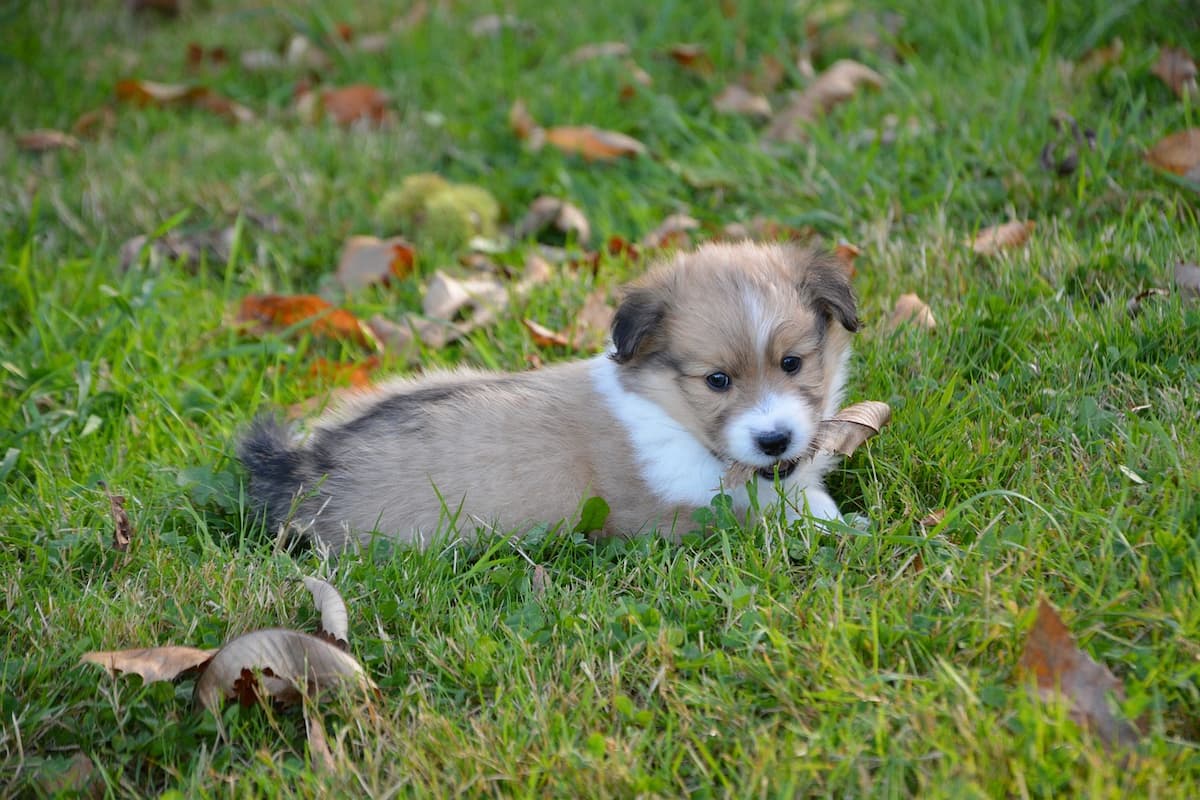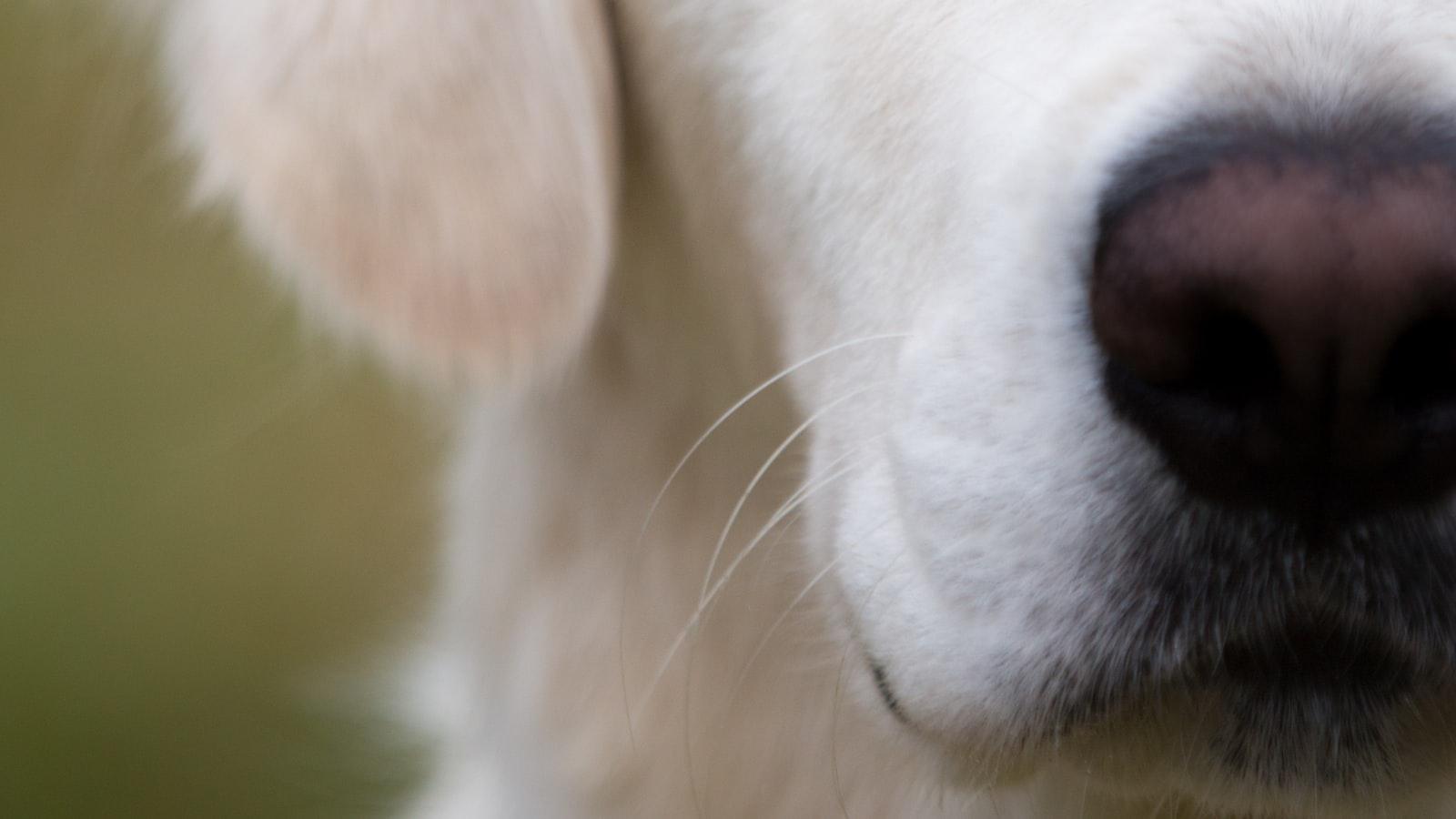Have you ever caught your furry companion munching on grass like it’s a tasty treat?
It seems like an odd choice for a snack, doesn’t it?
Well, you’re definitely not alone in wondering why dogs chow down on grass, especially when their stomachs are rumbling with distress.
It’s a common sight that has left pet owners scratching their heads for years.
Read on to find the answer to: Why do dogs eat grass when their stomach is upset?
Why Do Dogs Eat Grass When Their Stomach is Upset?
Have you ever noticed your dog munching on grass when they’re feeling under the weather?
It may seem like a strange behavior, but there could be a method to their madness.
Dogs often eat grass when their stomach is upset, and exploring the reasons behind this curious behavior can help us better understand and care for our furry friends.
1. Ancestral Dietary Habits
Dogs are descendants of wolves, and as such, their dietary habits are rooted in their carnivorous ancestry.
Wolves primarily consume herbivores, like deer and elk, which indirectly introduces plant matter into their diet.
This means that dogs have inherited a biological need for certain nutrients found in plants, such as fiber and specific vitamins.
So, when your pooch chomps on a blade of grass, their ancestral instinct might be telling them that their body requires those vital nutrients.
2. Digestive Aid
While dogs don’t possess the enzymes necessary to efficiently digest grass, they do have a rather persistent digestive system that can handle certain types of plant matter.
When their stomach is upset, dogs may instinctively seek relief by nibbling on grass.
The grass acts as a natural emetic to induce vomiting, helping to expel any indigestible or irritant material that may be causing discomfort or an upset tummy.
It’s their way of self-medicating, if you will, and finding a bit of relief.
3. Behavioral and Environmental Factors
Another reason dogs may engage in grass consumption is related to their behavior and environment.
Dogs are curious animals, and exploring the world through their senses, including taste, is an essential part of their nature.
They might find the texture and taste of grass intriguing, and it becomes a form of sensory exploration.
Additionally, some dogs may eat grass out of boredom or to alleviate anxiety.
Giving them appropriate outlets for mental and physical stimulation, such as toys, exercise, and interaction, can reduce their desire to graze on grass.
Evaluating the Pros and Cons of Grass Ingestion During Stomach Distress
Grass ingestion is believed to provide an assortment of benefits if your dog’s stomach is upset.
Let’s delve into some of the possible reasons behind this behavior:
Promotes Vomiting: Eating grass can act as a natural emetic to help your dog expel unwanted substances from their stomach.
The grass tickles their throat and stomach lining, inducing vomiting and potentially relieving discomfort.
Furthermore, the rough texture of grass may help dislodge any irritants that could be causing discomfort.
Fiber Intake: Grass contains dietary fiber, which can aid digestion and help regulate your pup’s bowel movements.
This promotes healthy gut function and could potentially ease stomach issues.
Nutritional Gap: In some cases, if your dog’s diet lacks certain nutrients, they may instinctively seek out grass as a way to supplement their nutritional intake.
By munching on the greens, they may be attempting to fulfill their nutritional requirements.
Grass contains essential nutrients like fiber, chlorophyll, and vitamin E, which can aid digestion and soothe an upset stomach.
While grass ingestion may have its potential benefits, it’s crucial to consider the cons as well:
Pesticide Exposure: If your dog consumes grass from an area treated with pesticides or chemicals, it could be harmful to their health.
Always ensure your furry friend has access to safe and pesticide-free grass to nibble on.
Gastrointestinal Irritation: Some dogs may experience adverse effects from ingesting grass, such as an irritated stomach or intestinal discomfort.
If your dog vomits excessively or displays any distressing symptoms after grass ingestion, it’s best to consult your veterinarian.
Ultimately, while dogs eating grass may seem like an odd behavior, it often serves a purpose.
However, if you notice any unusual or concerning symptoms in your canine companion, it’s wise to seek professional advice.
Understanding your dog’s unique needs and ensuring a safe grass source can help maintain a healthy digestive system and contribute to your pup’s overall well-being.
Reduce Stomach Upsets and Grass Consumption with Tips and Dietary Adjustments
Excessive grass eating in dogs is often a telltale sign that their stomach is upset.
It’s their own way of self-medicating, as grass can act as a natural remedy to relieve digestive discomfort.
However, it’s important to note that constant grass eating may indicate an underlying health issue that goes beyond temporary stomach upset.
If you notice your dog frequently munching on grass, it could be a sign of a more serious gastrointestinal problem, such as inflammatory bowel disease or intestinal parasites.
In such cases, it’s crucial to consult with your veterinarian for a proper diagnosis and treatment plan.
To minimize stomach upsets and reduce your dog’s grass consumption, here are a few tips and recommended dietary adjustments:
1. Opt for a high-quality, easily digestible dog food: Look for brands that offer premium ingredients and are specially formulated to promote optimal digestion.
Avoid foods with artificial additives, fillers, or excessive grains, as these can be harder for your dog to digest.
2. Consider adding digestive supplements: Probiotics and digestive enzymes can help maintain a healthy balance of bacteria in your dog’s gut and aid in the digestion process.
Consult with your veterinarian to determine the right supplements for your furry friend’s needs.
3. Monitor their diet and feeding schedule: Overfeeding or giving too many treats can overwork your dog’s digestive system.
Stick to a consistent meal schedule and portion sizes that align with their age, size, and activity level.
4. Gradually introduce dietary changes: If you decide to switch your dog’s food, do it gradually over a period of a few weeks.
Sudden changes can lead to stomach upsets and potentially increase grass consumption as well.
Remember, each dog is unique, and what works for one might not work for another.
If you have concerns about your dog’s digestive health or excessive grass-eating behavior, it’s always best to consult with your veterinarian.
With the right approach, you can support your dog’s digestive system and minimize stomach upsets while helping them lead a happy and healthy life.
FAQ
Q: Why do dogs eat grass when they’re not feeling well?
A: Well, it turns out that the answer isn’t as straightforward as you might think.
While there isn’t one definitive reason, there are a few common theories explaining this unusual behavior.
Q: What’s the first theory, then?
A: One of the most popular theories suggests that dogs eat grass as a natural remedy to induce vomiting.
When they have an upset stomach or feel nauseous, grass seems to act as a natural emetic, allowing their bodies to expel whatever is troubling them.
Q: Is that why my dog always vomits after eating grass?
A: Not necessarily.
While some dogs do vomit after munching on grass, many seem to be able to digest it without any adverse effects.
It depends on the individual dog and their digestive system.
Q: So, the second theory?
A: Another hypothesis is that dogs consume grass to add fiber to their diet.
Sometimes, even with a well-balanced diet, dogs may not get enough fiber, leading them to seek it out in nature.
Grass can provide the fiber boost they need, supporting proper digestion.
Q: Are there any other reasons dogs eat grass?
A: Absolutely!
Some behaviorists believe that dogs eat grass simply because they enjoy the taste and texture.
Dogs are known to investigate their world with their mouths, and grass might just be enticing to them.
It’s like a doggie salad bar they can’t resist!
Q: Is eating grass harmful to dogs?
A: Generally, eating grass is safe for dogs as long as it’s free from pesticides, chemicals, and other potential dangers.
However, it’s essential to monitor the amount and frequency of grass consumption.
If your dog starts displaying unusual symptoms or if the grass-eating becomes excessive, it’s always wise to consult your veterinarian.
Q: Can I prevent my dog from eating grass altogether?
A: Trying to stop your dog from eating grass entirely might not be necessary unless it causes problems like frequent vomiting or other health concerns.
However, providing your furry friend with a nutritionally balanced diet, ample exercise, and plenty of mental stimulation can help reduce the urge to munch on grass.
Q: Any final tips for understanding my dog’s grass-eating habits?
A: Remember, every dog is different, and their grass-eating habits can vary.
If your pup enjoys the occasional munch on grass and doesn’t seem to suffer any adverse effects afterward, there’s probably no reason to worry.
However, if you notice any unexpected changes in your dog’s behavior or if you’re concerned about their health, it’s best to consult a professional for personalized advice.
A Summation of Key Takeaways
From seeking essential nutrients and aiding digestion to trying to induce vomiting, these pups sure have some interesting strategies to deal with upset tummies.
So, the next time you catch your four-legged companion juggling grass blades, don’t panic!
Remember that it’s often just a natural instinct for dogs seeking relief.
Of course, if your pup’s grass-eating habit becomes excessive or is accompanied by other concerning symptoms, it’s always a good idea to consult your veterinarian.
They’ll have the expertise to determine if there’s an underlying issue that needs attention.
In the end, though, we can marvel at the ingenious ways our canine companions navigate the challenges their stomachs throw at them.
Grass-gobbling can certainly be a puzzling canine quirk, but it’s just one of the many fascinating behaviors that make dogs such unique and lovable companions.
So, sit back, relax, and let Rover enjoy his leafy snack.














